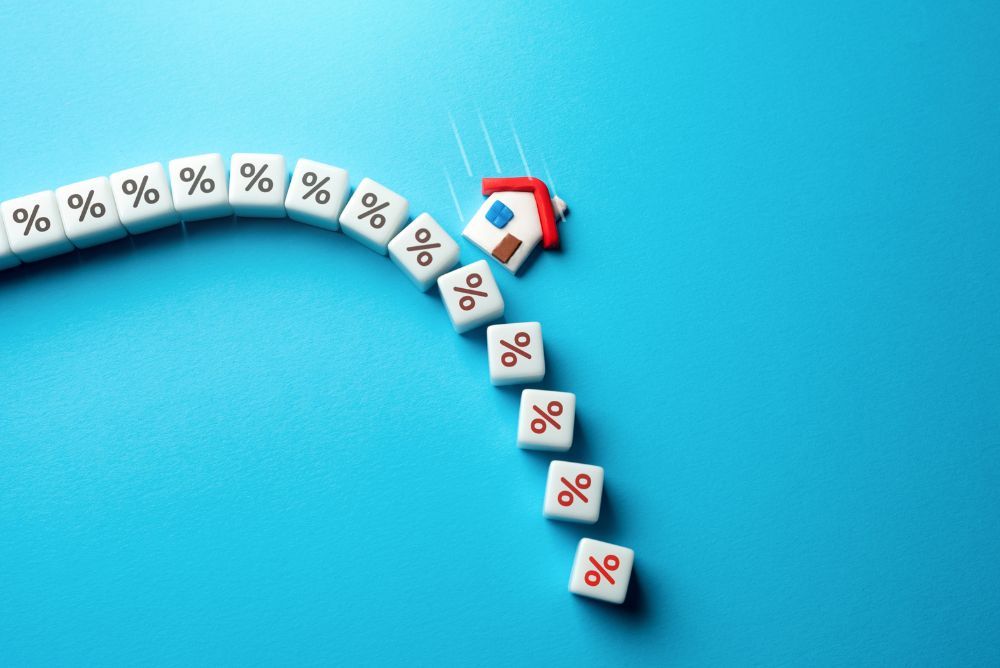The Impact of Economic Trends on Mortgage Rates: What Homebuyers Should Watch Out For

For many people, purchasing a home is one of the most significant financial decisions they'll ever make. Whether you are a first-time home buyer or a seasoned homeowner, understanding how economic trends affect mortgage rates is crucial.
Before delving into economic trends, let's start by understanding mortgage rates. Simply put, a mortgage rate is the interest rate charged on a home loan.
It's the percentage of the loan amount you will pay annually to borrow money from a lender. Mortgage rates can vary depending on several factors, including the type of loan, your credit score, and prevailing economic conditions.
Economic Indicators and Mortgage Rates
1. The Federal Reserve
One of the most significant influencers of mortgage rates is the Federal Reserve, often referred to as the Fed. The Fed sets the federal funds rate, which is the interest rate at which banks lend money to each other overnight. Changes in the federal funds rate can directly impact mortgage rates. When the Fed raises interest rates to control inflation, mortgage rates tend to increase as well.
2. Inflation
Inflation, or the rate at which the general level of prices for goods and services rises, also plays a role in mortgage rates. When inflation is high, lenders may demand higher interest rates to compensate for the diminishing value of money over time. As a result, mortgage rates tend to rise during periods of high inflation.
3. Economic Growth
The overall health of the economy can affect mortgage rates. During periods of robust economic growth, demand for loans increases, leading to higher mortgage rates. Conversely, when the economy is struggling, and demand for loans decreases, mortgage rates may decline to stimulate borrowing and spending.
4. Unemployment Rate
The unemployment rate, which measures the percentage of people actively seeking employment but unable to find jobs, can impact mortgage rates as well. When unemployment is low, consumers are more likely to take out mortgages, leading to higher demand and potentially higher rates. Conversely, high unemployment may result in lower mortgage rates to encourage borrowing and stimulate economic activity.
5. Housing Market Conditions
Supply and demand dynamics within the housing market also influence mortgage rates. In a competitive housing market with high demand and limited inventory, mortgage rates may rise to reflect the increased competition among buyers. Conversely, in a buyer's market with ample inventory and lower demand, mortgage rates may decrease to attract more buyers.
Factors Affecting Mortgage Rates Today
Now that we've covered the general economic indicators that impact mortgage rates let's take a closer look at the current trends affecting homebuyers:
1. Federal Reserve Policy
In recent years, the Federal Reserve has implemented a policy of gradually increasing interest rates to combat inflation and maintain economic stability. As a result, mortgage rates have been on the rise, making it more expensive for homebuyers to borrow money. Homebuyers should keep a close eye on the Fed's announcements and adjust their financing strategies accordingly.
2. Inflationary Pressures
Inflation has been a concern in recent months due to supply chain disruptions, labor shortages, and rising energy prices. While the Federal Reserve has indicated its willingness to tolerate temporary inflationary pressures, sustained high inflation could prompt the Fed to raise interest rates more aggressively, leading to higher mortgage rates.
3. Economic Recovery
The ongoing economic recovery from the COVID-19 pandemic has contributed to increased consumer confidence and spending. As the economy continues to rebound, demand for loans, including mortgages, is expected to rise. Homebuyers should be prepared for potentially higher mortgage rates as economic activity picks up pace.
4. Housing Market Dynamics
The housing market has been red-hot in many parts of the country, with record-high home prices and intense competition among buyers. While low mortgage rates have fueled demand, affordability concerns, and limited inventory have put upward pressure on prices. Homebuyers should closely monitor market conditions and be prepared for potential changes in mortgage rates as the housing market evolves.
5. Global Economic Factors
Global economic events and geopolitical tensions can also influence mortgage rates. Factors such as trade disputes, geopolitical conflicts, and currency fluctuations can create uncertainty in financial markets, leading to volatility in interest rates. Homebuyers should stay informed about global economic developments and their potential impact on mortgage rates.
Conclusion:
In conclusion, economic trends play a significant role in determining mortgage rates, which in turn affects the affordability of homeownership for millions of people.
By understanding the various factors that influence mortgage rates and staying informed about current economic trends, homebuyers can make informed decisions about when to buy a home and secure financing.
Whether you are a first-time buyer or a seasoned homeowner, being aware of the impact of economic factors on mortgage rates is essential for achieving your homeownership goals.
Recent Blogs
View allThe Knowledge Hub
You acknowledge and agree to Lending Hub's Terms of Use and Privacy Policy by submitting your email address. Contact Us for more information. You can unsubscribe at any time.